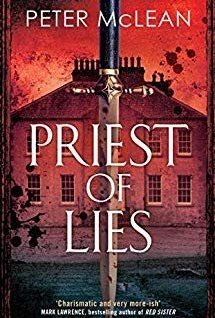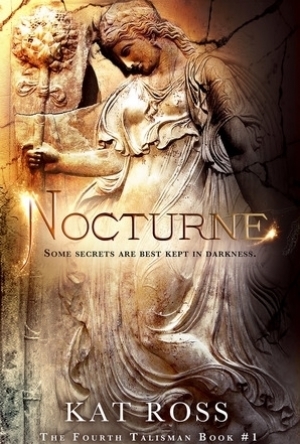
Nocturne (Fourth Talisman #1)
Book
Nocturne, a wilderness of eternal night. Solis, a wasteland of endless day. Nazafareen is a...
high fanatsy 3 stars
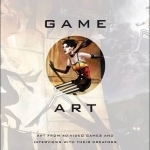
Game Art: Art from 40 Video Games and Interviews with Their Creators
Book
Game Art is a collection of breathtaking art from 40 video games and interviews with their creators....
Matthew Krueger (10051 KP) rated Beetlejuice (1988) in Movies
Nov 7, 2020
The plot: After Barbara (Geena Davis) and Adam Maitland (Alec Baldwin) die in a car accident, they find themselves stuck haunting their country residence, unable to leave the house. When the unbearable Deetzes (Catherine O'Hara, Jeffrey Jones) and teen daughter Lydia (Winona Ryder) buy the home, the Maitlands attempt to scare them away without success. Their efforts attract Beetlejuice (Michael Keaton), a rambunctious spirit whose "help" quickly becomes dangerous for the Maitlands and innocent Lydia.
Burton cast Ryder upon seeing her in Lucas. O'Hara quickly signed on, while Burton claimed it took a lot of time to convince other cast members to sign, as "they didn't know what to think of the weird script.
Warner Bros. disliked the title Beetlejuice and wanted to call the film House Ghosts. As a joke, Burton suggested the name Scared Sheetless and was horrified when the studio actually considered using it.
Beetlejuice Goes Hawaiian is in development hell and now its shelved. So the likely chance of it coming out is unlikely, but who knows.
Like i said before Beetlejuice is a excellent Halloween Classic.
Heather Cranmer (2721 KP) created a post
Oct 4, 2020
Ross (3284 KP) rated Priest of Lies in Books
Jun 26, 2019
Priest of Bones was one of my favourite books of last year. I loved the narrative style, the dark tone and the simple yet thrilling storyline. The returning conscripts using their newly learned military tactics to take back their streets and run their gangland empires was a clever, honest and hard-hitting story. It really was "peaky blinders with swords".
The follow-up continues in that vein, the Pious Men gang have consolidated their hold in Ellinburg and are now at full-on gang war. However, as they returned from war, so does a large number of other former gangsters, and a number of new/revived gangs compete for territory.
The fantasy tone is still used here, despite being the mystical, noble pursuit we are used to. I seriously love Mclean's narrative voice, his action scenes and his overall pace of writing.
I was thrilled to see in the Q&A at the end of the book that I was right in thinking Ellinburg was based loosely on Edinburgh.
The feel of this book is very much a grim and nasty version of Terry Pratchett's Guards series, with characterisation and scene setting to rival Pratchett at his best.
A truly immersive compelling read that I loved from start to finish.
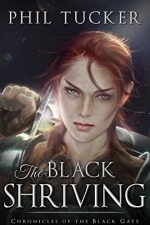
The Black Shriving
Book
When invasion looms... After a harrowing battle Lady Kyferin and her stalwart followers have earned...
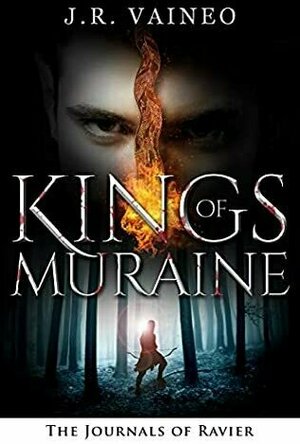
Kings of Muraine (The Journals of Ravier #1)
Book
A YEAR TO THE DAY since my dad, Lance Ravier, died. Somehow, it felt like just yesterday. The shock...
Dark Epic Fantasy
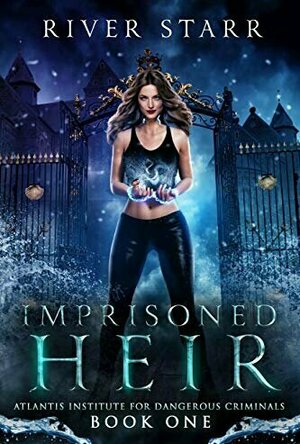
Imprisoned Heir (Atlantis Institute For Dangerous Criminals #1)
Book
We're the most dangerous criminals... They call me Nyx. Under the cover of night, I used to steal...
Urban Fantasy Romance
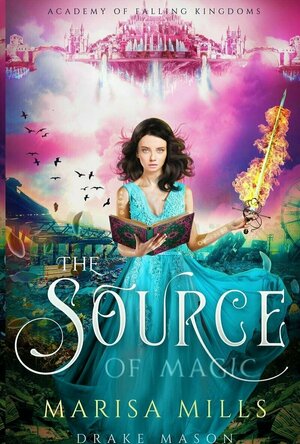
The Source of Magic (Academy of Falling Kingdoms #1)
Book
I can speak to demons. The punishment is death. The mission: put on a dress, pretend to be a...


